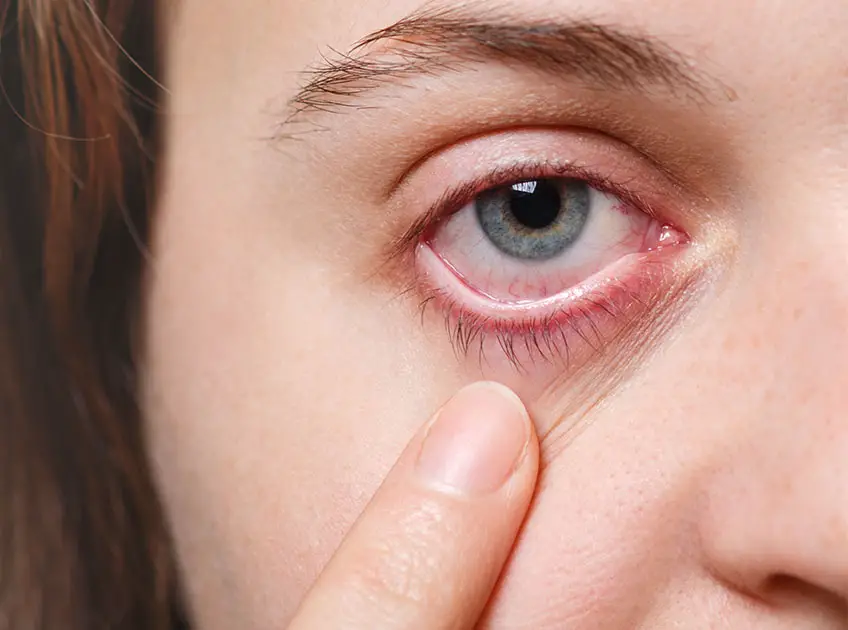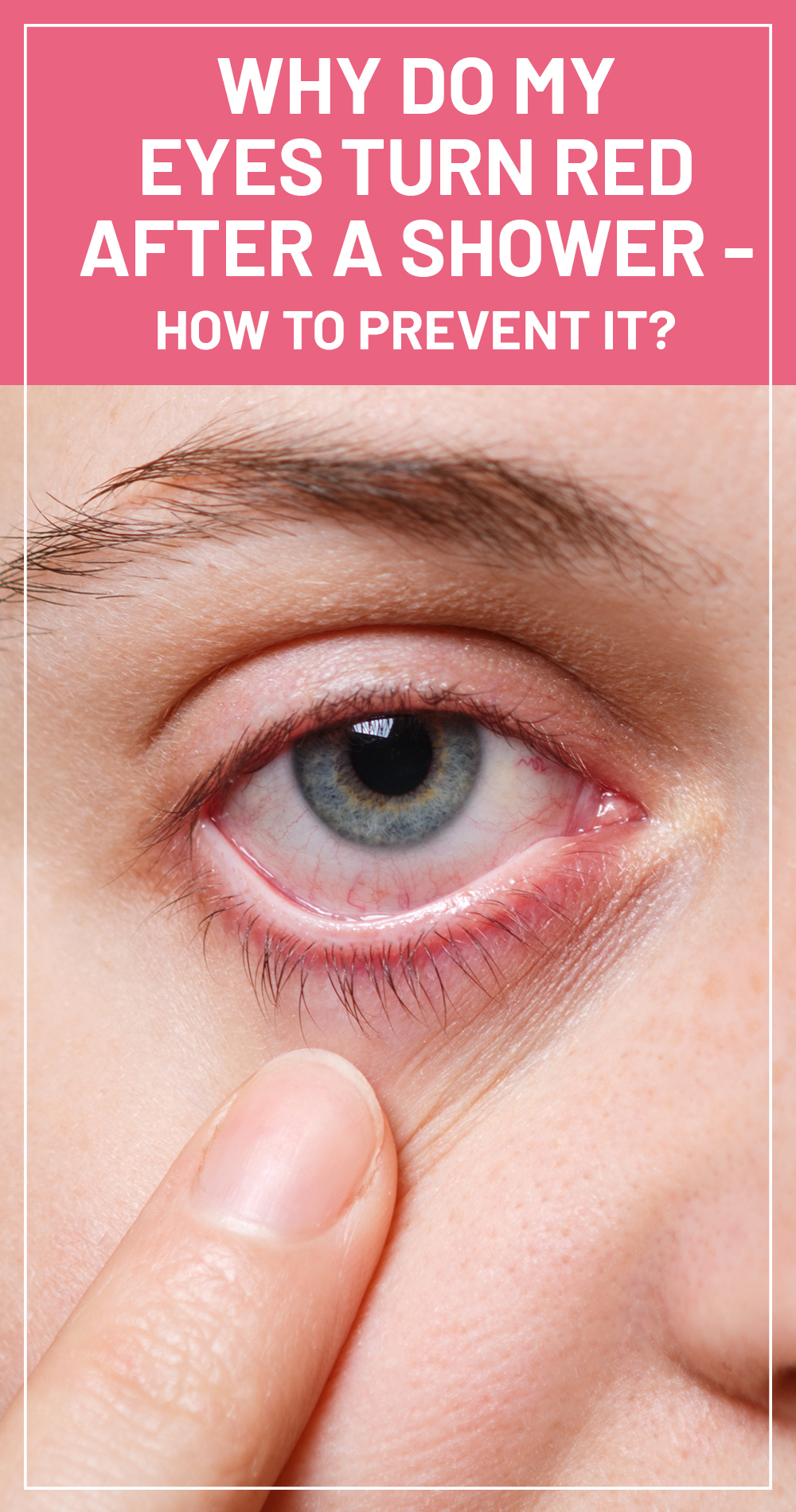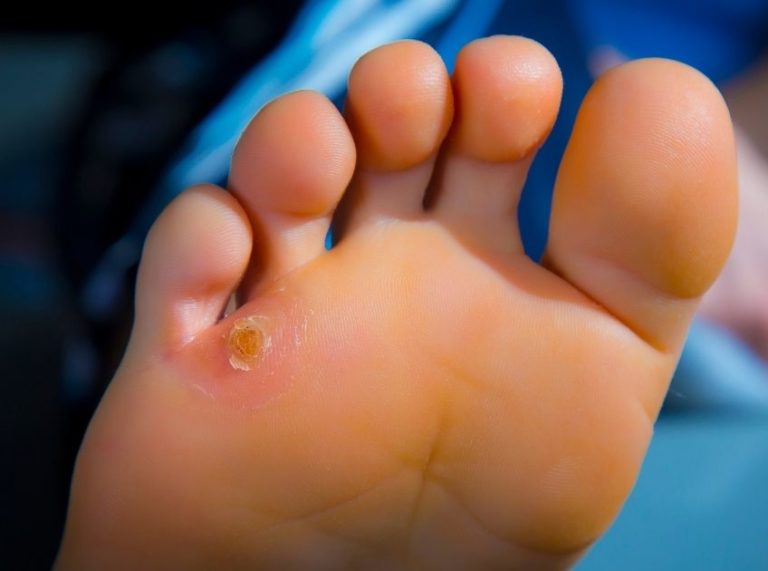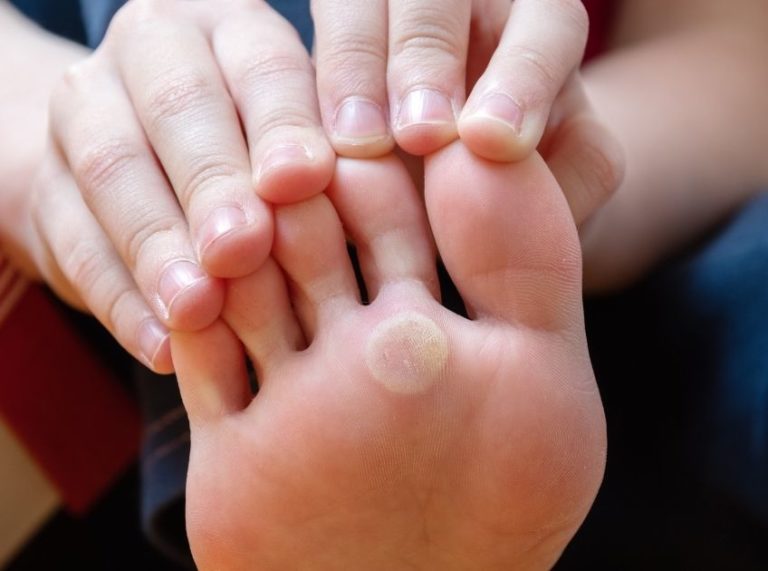
Important: This article is for informational purposes only. Please read our full disclaimer for more details.
Red eyes often indicate eye fatigue or allergy; however, if the eyes get red after a shower, what does it mean?
It is one of the most common question people with such symptoms ask. Is it serious? Do I need to visit an eye specialist? Are my eyes hurting due to water?
If you also get red eyes after a shower and are in a dilemma about what causes it, here, you will learn everything about it.
Red Eyes After A Shower

Experiencing bloodshot eyes after a shower is not a life-threatening problem; however, it can cause some highly uncomfortable symptoms. You may feel eye irritation, burning sensation, greasy eyelashes, photosensitivity, and even blurred vision. Fortunately, showering tips and home remedies can help manage this problem. Before knowing them, let’s find out what causes eyes to red after a shower.
Why Do The Eyes Become Red After A Shower?
A few reasons that explain why eyes turn red and sometimes itchy after showering-
1. Shampoo and Soap- Certain products we use while showering may contain ingredients that don’t suit everyone’s eye. When you use a soap or face wash and rub it over the eyes, the chemicals can irritate, leading to red and itchy eyes.
2. Shower Water- Sometimes, even after using all-natural and organic ingredients, the eyes become red. In such cases, it’s not the products but the water which is the culprit behind red eyes.
Shower water may have contaminants that are not visible to the naked eye, but they have the potential to cause eye irritation. Some major contributors in tap water that causes red eye after shower include the following-
1. Chlorine- Chlorine is considered an effective disinfectant. Most public water supplies contain chlorine as it helps kill most germs and microbes in the water. Even though the quantity of chlorine is not high enough to cause any harm, some people who are more sensitive to it get red eyes.
Moreover, chlorine can dehydrate the eyes, making them teary and red. If the eyes are exposed to chlorine for a long, it can make the eyes sensitive to light for several hours.
2. Hardness Minerals- Tap water contains a high amount of dissolved minerals like calcium and magnesium. If the water is hard, the chances of eyes becoming red after a shower also increase. In some cases, hard water also consists of a significant amount of iron, salts, and other metallic elements.
These elements may irritate the skin as well as the eyes. While taking a shower, these hard minerals dry the eyes, making them red and itchy. The best way to know your tap water is hard is by checking the drains and faucets. If you see white scales or mineral residues, it indicates the presence of dissolved minerals in high concentration.
3. Allergens And Other Foreign Objects- If you are allergic to certain chemicals or if tap water comprises foreign objects, your eyes may get irritated and itchy. As you rub the eyes to calm the itch, they may turn red.
So, rubbing the eyes after showering due to any reason can cause them to turn red.
4. Hot Shower- Water temperature is another reason why your eyes turn red. Even though it is advised to take hot showers, if the temperature is considerably warm, it may expand the blood vessels, resulting in eye redness. Likewise, steam from hot water may result in bloodshot eyes. To avoid this, make sure the water is not too hot.
How To Prevent Red Eye After A Shower?

Usually, the redness of the eyes after a shower is temporary and clears up quickly. However, a few remedies can hasten this process.
1. Use Distilled Water– Water flushes out the irritants and makes them clean. Make sure you use distilled water instead of tap water for cleaning the eyes.
2. Prepare Homemade Eyewash- You can prepare homemade eyewash by adding salt to distilled water. It can remove dust particles, pollen, and other foreign objects from the eyes and relieve irritation, itching, and redness. To make this solution, add a teaspoon of salt to a cup of distilled or boiled water. This pH-balanced saline solution will clean the eyes thoroughly as it will function like tears. Take extra care while making this solution, as any contamination can further exacerbate the infection and cause more redness to the eyes.
3. Use Artificial Tears- Over-the-counter eyedrops and artificial tears can also be used. They lubricate the eyes and reduce dryness and red eyes.
4. Apply Cool Compress- Take a clean towel and soak it in cool water. Wring out the excess water from the towel and apply it to the eyes. Cold water can reduce inflammation and provide relief from the itch. Make sure the towel is clean, and water is boiled or distilled to avoid contamination. Also, avoid extreme temperatures because the areas around the eyes are highly sensitive.
5. Apply Warm Compress- If the cool compress is not working, take the opposite approach and apply a warm compress. Take a clean towel and soak it in warm water. Wring out the excess water from the towel and apply it to the eyes. Take the same precautions as you took in the cold compress, like don’t use excessively warm water and use only a clean towel. Warmth increases blood flow, which helps in better lubrication.
Final Words
If you experience eye red after a shower, check your water parameters and ensure the level of chlorine, dissolved minerals, and allergens is low. If you still get red eyes, home remedies can help. If the problem persists, visit the eye specialist as soon as possible.
Image Credit: freepik
You Might Also Like
- How To Get Rid Of A Headache Between The Eyebrows?
- When Is It Too Late To Treat Lazy Eye?
- 7 Simple Home Remedies For Puffy Eyes
- How to Get Rid of Eye Bags with Spoons
- 6 Simple Homemade Natural Eye Creams for Dark Circles
- Homemade Rosehip Oil Eye Cream For Wrinkles & Dark Circles
- How to Use Argan oil for Eyelashes Growth?
- Why Do Your Eyes Get Red When You Cry
- Why Do You Sweat After A Shower? How To Prevent It
- Why Does My Eye Hurt When I Blink?
















